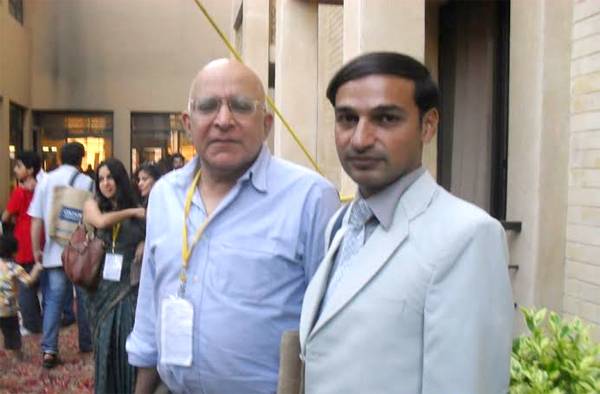
For years, the rumors had floated up from the cultural hotbed of Karachi, tales of writers traveling from across South Asia to discuss and debate the tricks and tones of language, poetry and film. And this time, it actually happened: the Margalla Hotel in Islamabad was packed as the audience twisted their necks to catch a glimpse of Sheema Kirmani’s graceful opening performance.
The second Islamabad Literature Festival bought a great energy to the sonorous capital, and although it is unfair to compare it to the breezy stage besides the sea at the Beach Luxury Hotel, it attracted an eclectic crowd no less eager for literary, political and artistic conversation. This included a frequent exchange on the politics of the English language, which is at once considered an elitist privilege and lingua franca of the postcolonial subcontinent.
“English has always been my medium,” declared short story writer and novelist Aamer Hussain, who over the years has become an “owner” of the language. English had traveled to him, and he had traveled to it.
[quote]"English has always been my medium," declared short story writer and novelist Aamer Hussain[/quote]
“To translate literature, especially poetry, can be an impossible task without the requisite language skills and broad knowledge base,” said Professor Waqas Khawaja, who recently edited an anthology of translated Pakistani poetry.
The orators of the dastangoi session – Indian stars Mahmood Farooqi and Danish Hussain – elicited laughter in the stuffy room as they described the antics at a Lakhnavi court, the way the queen’s braid draped around her tiny waist, and the slight quiver that traveled through her lover when he glimpsed her. But it was easy to get lost in the Urdu vernacular if one was not familiar with the vocabulary of the poet. The subtle humor produced chuckles in the older members of the audience, displaying the fracture created by multiple tongues in our times.
Packed audiences were entertained by the tongue and cheek of the dastangoi and the lyrical rendition of the Mushaira at the Festival. This was an attempt to revive historical traditions of verse in local languages, while celebrating mythological construction in contemporary English works.
The second Islamabad Literature Festival bought a great energy to the sonorous capital, and although it is unfair to compare it to the breezy stage besides the sea at the Beach Luxury Hotel, it attracted an eclectic crowd no less eager for literary, political and artistic conversation. This included a frequent exchange on the politics of the English language, which is at once considered an elitist privilege and lingua franca of the postcolonial subcontinent.
“English has always been my medium,” declared short story writer and novelist Aamer Hussain, who over the years has become an “owner” of the language. English had traveled to him, and he had traveled to it.
[quote]"English has always been my medium," declared short story writer and novelist Aamer Hussain[/quote]
“To translate literature, especially poetry, can be an impossible task without the requisite language skills and broad knowledge base,” said Professor Waqas Khawaja, who recently edited an anthology of translated Pakistani poetry.
The orators of the dastangoi session – Indian stars Mahmood Farooqi and Danish Hussain – elicited laughter in the stuffy room as they described the antics at a Lakhnavi court, the way the queen’s braid draped around her tiny waist, and the slight quiver that traveled through her lover when he glimpsed her. But it was easy to get lost in the Urdu vernacular if one was not familiar with the vocabulary of the poet. The subtle humor produced chuckles in the older members of the audience, displaying the fracture created by multiple tongues in our times.
Packed audiences were entertained by the tongue and cheek of the dastangoi and the lyrical rendition of the Mushaira at the Festival. This was an attempt to revive historical traditions of verse in local languages, while celebrating mythological construction in contemporary English works.

